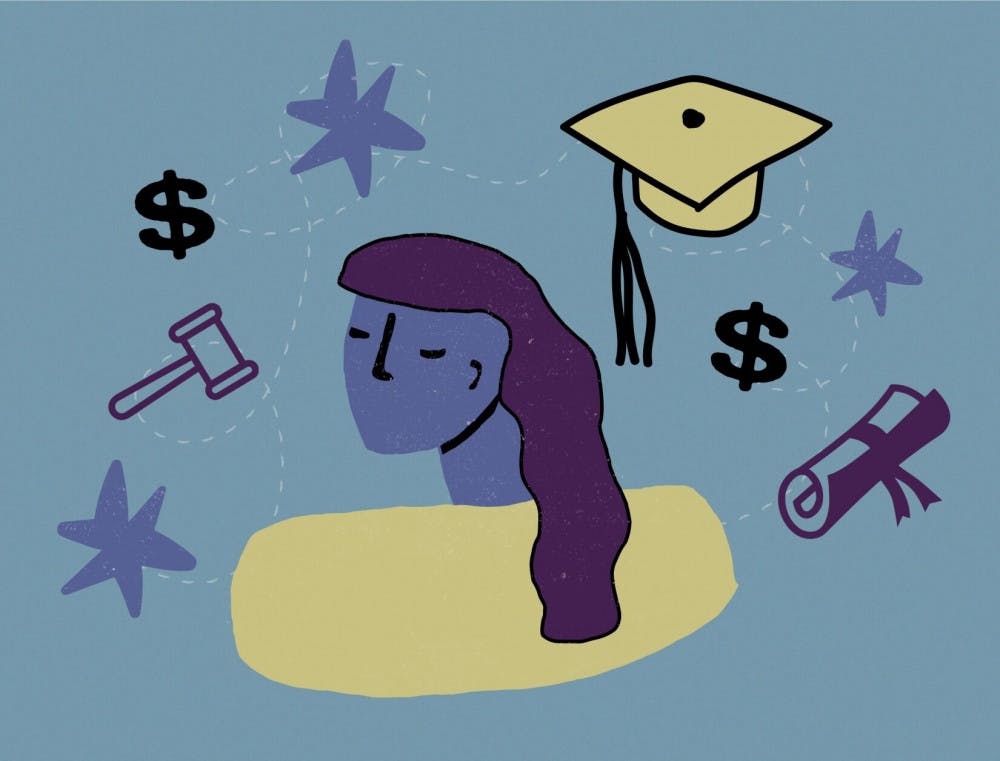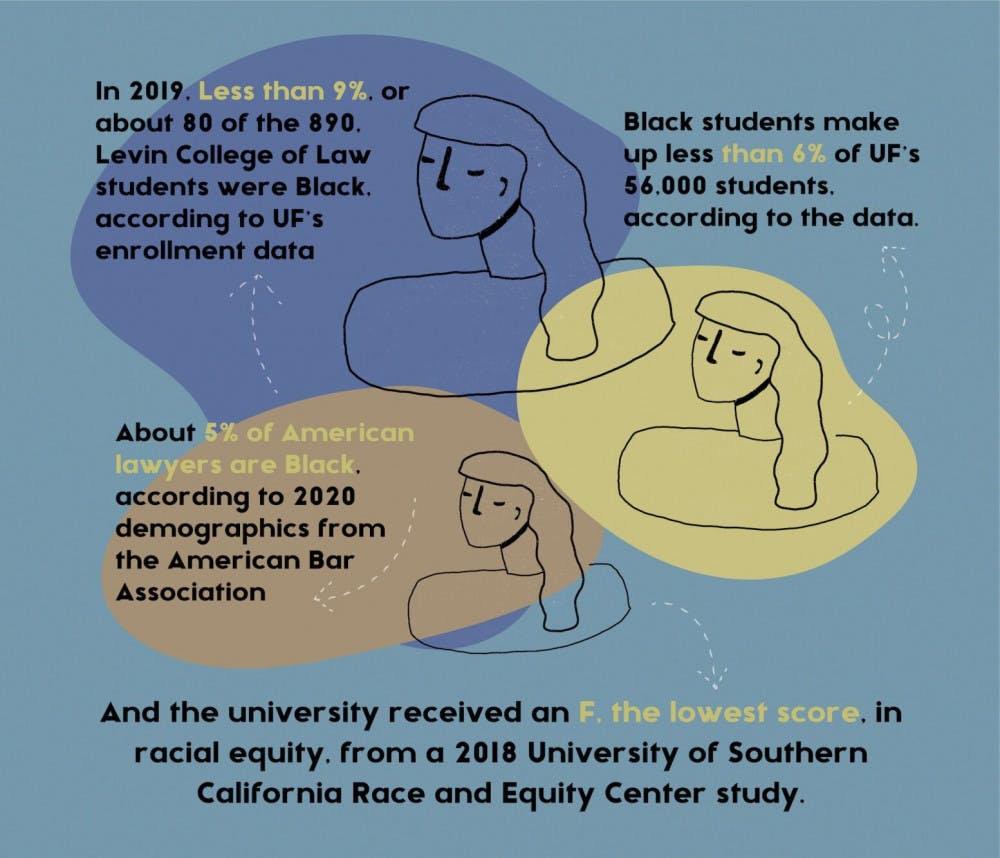
The UF’s Levin College of Law’s latest, and largest, scholarship yet, $1.1 million, will fund the full tuition of five law students who graduated from historically Black colleges and universities.
The first class of scholarship recipients will be chosen in Fall 2021, said Levin Dean Laura Rosenbury. The scholarship will cover the full three years of tuition at Levin College of Law, regardless whether the recipients are in-state or out-of-state, she said.
The college administration hopes to expand HBCU Pathway to Law Endowed Scholarship to $2 million by 2021 and fund another five students, eventually totaling to 10, through fundraising with law associations and alumni, Rosenbury said.
Yolanda Cash Jackson, a 62-year-old 1990 Levin College of Law alumna, began the scholarship March 2019 with college administration, making it the first endowed scholarship created by Black Levin College of Law alumni.
Jackson said she hopes the scholarship will increase diversity in the college and the law profession.
“The University of Florida has never had a lot of students like me,” she said.
At the beginning of August, Hugh Culverhouse, a 1974 UF Levin College of Law graduate, donated $1 million to the scholarship fund after congressman and civil rights icon John Lewis’ death in July, Rosenbury said. The scholarship recipients will be called John Lewis Scholars in his honor, Jackson said.
The college shared the news of the scholarship with 106 HBCUs, such as Howard University and Prairie View A&M University, across the country to attract applicants, Rosenbury said.
More than 75 percent of students from historically Black colleges and universities rely on Pell Grants, a form of federal grants for low-income students, to pay for college, according to the Thurgood Marshall College Fund, an organization representing HBCUs and predominantly Black universities.

In 2019, less than 9%, or about 80 of the 890, Levin College of Law students were Black, according to UF’s enrollment data. About 5% of American lawyers are Black, according to 2020 demographics from the American Bar Association.
Black students make up less than 6% of UF’s 56,000 students, according to the data. And the university received an F, the lowest score, in racial equity, from a 2018 University of Southern California Race and Equity Center study.
Professor Katheryn Russell-Brown, the director of the Levin College of Law’s Center for the Study of Race and Race Relations, said the college’s upcoming graduating class has only 15 Black law students.
“Race has an impact on and engages with all aspects of laws,” she said. “Not just criminal law, not just constitutional law, but fact law, property law, zoning, artificial intelligence, administrative law.”
UF departments across the university are starting initiatives to increase diversity and address equity after nationwide Black Lives Matter protests. Some Black students and faculty shared their stories of racial abuse and microaggressions at UF. Other students demanded the university do more to address its racist history.
“We started this conversation way before Geroge Floyd, way before the pandemic,” Jackson said.
Jackson said she and college administration began talks for the scholarship when she made a commencement speech at the college’s May 2019 graduation ceremony.
Jackson’s initial contribution to the scholarship in March this year was the first of three contributions from other Black alumni, she said.
Jackson said she wanted to continue the legacy of historic Black figures at UF like Virgil Hawkins, a Black student who sued UF for his right to attend in 1949, nine years before UF integrated, and George Allen, UF’s first Black graduate.
“Although many years have passed, we are still having the same discussion at the college of law about inclusion,” she said.
Levin College of Law 1994 graduate Gregorio Francis contributed $50,000 to the scholarship fund this summer, raising the total to more than $100,000 and meeting the college’s criteria to become an official scholarship.
Francis, who now serves on the Board of Trustees for the HBCU Bethune-Cookman University, said HBCU students often face unique financial challenges like homelessness and supporting families while in college.
“This is not just a financial contribution, but a commitment, to the development of those students once they get there,” he said.
Lianna Hubbard is a reporter for The Alligator’s Investigative Team. The UF women’s study major began as a freelance reporter three years ago. She founded her community college’s award-winning newspaper before beginning at The Independent Florida Alligator. See an issue in your community or a story at UF? Send tips to her Twitter.





